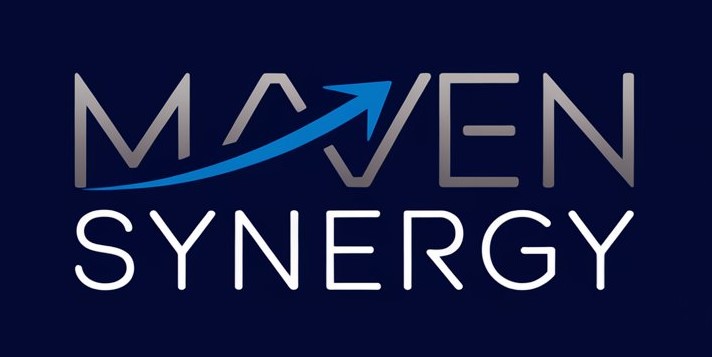High-Income Skills to Learn in 2025
I recently analyzed the latest job market trends and discovered that the high-income skills that will earn you substantial money in 2025 are significantly different from those in demand just a few years ago. In 2023, tech and digital roles commanded an impressive 70% salary premium over non-tech positions, with average compensation reaching $111,193, according to the U.S. Bureau of Labor Statistics.
What’s interesting? Some of these high-income skills can be learned in just a few months, and they’re already helping people earn $100K+ annually. The World Economic Forum’s Future of Jobs Report shows that 85 million jobs may be displaced by 2025, but 97 million new ones will emerge – most requiring these exact skills I’m about to share.
In this guide, I’ll walk you through the 25 most lucrative skills that will be in high demand in 2025. Whether you want to switch careers or boost your earning potential, this guide will provide a strong foundation.
While some skills on this list aren’t strictly tech or digital, they still rank as high-income skills that can propel your career and financial success in 2025. But before we dive in, let’s first define what high-income skills really are.
What Are High-Income Skills?
Let me break this down in a way that’ll make perfect sense. High-income skills aren’t just regular job skills – they’re specialized abilities that can earn you significantly more than the average salary. I’m talking about skills that can bring in $70,000, $100,000, or even $200,000+ annually!
Think of high-income skills like having a superpower in the job market. They’re usually:
- Hard to master (that’s why they’re valuable!)
- In high demand but low supply
- Solve expensive problems for businesses
- Can be monetized in multiple ways
I love how these skills give you options – you can use them to land a high-paying job, freelance on the side, or even start your own business.
Pro Tip: The best high-income skills often combine technical expertise with problem-solving abilities. Companies will pay premium rates when you can translate complex skills into real business solutions.
| Income Level | Typical Requirements | Time to Master |
| $70K-100K | Entry-level expertise | 6-12 months |
| $100K-150K | Intermediate skills + experience | 1-2 years |
| $150K+ | Advanced expertise + proven track record | 2-3+ years |
Now let’s dive in.
1. AI & Machine Learning

AI and machine learning involve creating systems that can analyze data, recognize patterns, and make decisions or predictions without human intervention. These are essential for automation, predictive analytics, and AI-driven solutions.
I can’t stress this enough – AI is absolutely EXPLODING right now! I’ve been in tech for years, and I’ve never seen anything move this fast. You know what’s interesting? Companies are desperately hunting for AI talent, and they’re willing to pay serious money for it.
Here’s what you can actually do with AI & ML skills:
- Train neural networks to solve complex business problems
- Create personalized recommendation systems (like Netflix uses!)
- Develop chatbots and virtual assistants (yes, like the ones that don’t make you want to throw your phone across the room)
| AI Role | Average Salary (2024) | Experience Level |
| ML Engineer | $150,000+ | 3-5 years |
| AI Research Scientist | $180,000+ | 5+ years |
| AI Applications Developer | $130,000+ | 2-4 years |
2. Data Analysis & Visualization
This skill involves turning raw data into actionable insights using tools like Power BI, Tableau, or Excel. It’s critical for decision-making in businesses.
You’ve probably heard everyone talking about “data-driven decisions,” right? Well, I’m here to tell you that understanding data is like having a superpower in 2025. I remember when I first learned Power BI – my mind was BLOWN by how quickly I could turn boring spreadsheets into stunning visualizations.
Key Skills You Need:
- Power BI or Tableau mastery
- SQL for database querying
- Statistical analysis techniques
- Excel (yes, it’s still relevant!)
3. Cybersecurity
Cybersecurity focuses on protecting organizations from cyber threats like hacking, data breaches, and malware. This skill is crucial in an increasingly digital world.
Listen, because this is HUGE – cybercrime is expected to cost companies $10.5 trillion annually by 2025. I’ve seen small businesses completely devastated by cyberattacks, and let me tell you, they would’ve paid anything for good security.
Essential Cybersecurity Skills:
- Network security
- Ethical hacking
- Security auditing
- Incident response
Pro Tip: Start with CompTIA Security+ certification. It’s the perfect foundation, and I’ve seen junior security analysts land $80K jobs with just this certificate!
4. Cloud Computing
Expertise in cloud platforms like AWS, Azure, and Google Cloud is vital for businesses managing data, infrastructure, and applications online.
Cloud is the new normal, and I’m seeing CRAZY demand for cloud experts. AWS, Azure, and Google Cloud are basically printing money right now, and they need people who understand their platforms.
Most In-Demand Cloud Skills:
- Multi-cloud architecture
- Cloud security
- Serverless computing
- Container orchestration
| Cloud Platform | Certification Path | Starting Salary |
| AWS | Solutions Architect | $120,000+ |
| Azure | Azure Administrator | $115,000+ |
| Google Cloud | Cloud Engineer | $125,000+ |
5. Software Development
Software development involves programming in languages like Python, JavaScript, and using frameworks for app or web development.
Software development isn’t just about writing code anymore. It’s about solving real-world problems. The best part? You can start with free resources and build your way up.
Must-Have Programming Languages for 2025:
- Python (for AI and automation)
- JavaScript (for web development)
- Rust (for system programming)
- Kotlin (for Android development)
Pro Tip: Don’t just learn syntax – build real projects!
Look, here’s the thing about these first five skills – they’re all interconnected. I’ve seen developers who understand AI, cloud, and security easily command $200K+ salaries. Start with one, but keep your mind open to learning the others. Trust me, your future self will thank you!
6. Blockchain Development

This involves designing decentralized applications (DApps) and smart contracts on blockchain platforms like Ethereum.
You might think the crypto buzz has died down, but let me tell you something exciting – blockchain is WAY bigger than just cryptocurrency! I’ve watched this space evolve, and now major companies like JPMorgan and Microsoft are going all-in on blockchain technology.
Key Blockchain Skills You Need:
- Smart contract development
- Solidity programming
- Web3.js and Ethereum development
- Decentralized application (DApp) architecture
| Blockchain Role | Average Salary | Key Requirements |
| Smart Contract Developer | $160,000+ | Solidity + Security |
| Blockchain Architect | $185,000+ | System Design + Crypto |
| DApp Developer | $145,000+ | Web3 + Frontend |
7. User Experience (UX) Design
UX design focuses on creating user-friendly digital products that enhance customer interactions and satisfaction.
Let me share something mind-blowing – companies are losing MILLIONS because of poor user experience. I’ve seen businesses completely transform their revenue just by improving their UX. It’s not just about making things pretty; it’s about making them work beautifully.
Essential UX Design Skills:
- User research and testing
- Wireframing and prototyping
- Information architecture
- Interaction design
8. E-Commerce Strategy
This involves creating and scaling online businesses, optimizing sales channels, and developing effective marketing strategies.
E-commerce is on fire! With global e-commerce sales hitting $5.5 trillion in 2024, this skill is literally like printing money.
Must-Have E-Commerce Skills:
- Platform management (Shopify, WooCommerce)
- Sales funnel optimization
- Inventory management
- Customer journey mapping
| Strategy Component | Impact Level | Implementation Time |
| Product Optimization | High | 1-2 weeks |
| Cart Abandonment | Critical | 2-3 days |
| Email Marketing | Essential | 1 week |
Pro Tip: Master ONE e-commerce platform completely.
9. Digital Marketing
Digital marketing includes mastering SEO, PPC, social media, and content marketing to drive online engagement and sales.
Want to know what’s interesting? Companies are DESPERATE for digital marketers who actually know what they’re doing.
Core Digital Marketing Skills:
- SEO and content strategy
- Social media marketing
- Email marketing automation
- Analytics and tracking
10. Sales Funnel Optimization
This skill involves designing strategies that guide potential customers through the buying process to maximize conversions and revenue.
This one’s a game-changer! I’ve seen businesses 3X their revenue just by optimizing their sales funnels. The best part? Once you understand the psychology behind it, you can apply it to ANY business.
Key Funnel Components to Master:
- Lead magnets and opt-ins
- Email sequences
- Upsell strategies
- Conversion optimization
| Funnel Stage | Average Conversion | Optimization Priority |
| Awareness | 3-5% | Medium |
| Interest | 20-30% | High |
| Decision | 10-15% | Critical |
| Action | 2-5% | Highest |
Remember, these skills aren’t just theoretical – I use them every day, and I’m seeing incredible results. The key is to pick one that aligns with your interests and go ALL IN. Trust me, the market for these skills is only getting hotter!
11. Renewable Energy Engineering
This field focuses on designing systems and solutions for sustainable energy sources like solar, wind, and bioenergy.
Listen, I’m super excited about this one! Renewable energy isn’t just good for the planet – it’s INCREDIBLE for your wallet too. I’ve watched this industry explode, and here’s the crazy part: there aren’t enough qualified engineers to meet the demand!
Key Areas of Expertise:
- Solar system design and implementation
- Wind energy technology
- Energy storage solutions
- Sustainability consulting
| Energy Sector | Growth Rate (2024) | Starting Salary |
| Solar | 27% | $85,000+ |
| Wind | 22% | $90,000+ |
| Battery Tech | 35% | $95,000+ |
12. Biotechnology

Biotechnology leverages biology to innovate in healthcare, agriculture, and environmental sciences.
Okay, this field absolutely BLOWS MY MIND! After COVID-19, biotech has gone stratospheric. I’ve seen recent graduates pull in six-figure salaries because they specialized in the right areas.
Essential Biotech Skills:
- Gene editing techniques
- Bioinformatics
- Lab automation
- Clinical research management
13. DevOps Engineering
This involves automating and streamlining software development and IT operations to enable faster, more reliable software delivery.
Listen, I’m genuinely excited about this one because I’ve seen DevOps engineers transform entire companies! The demand is crazy right now – companies are fighting over DevOps talent because they can slash deployment times from months to minutes.
Essential DevOps Skills:
Containerization (Docker, Kubernetes) CI/CD pipeline automation Infrastructure as Code (Terraform, CloudFormation) Monitoring and observability tools
| Role Level | Average Salary | Core Requirements |
| Junior DevOps | $95,000+ | Basic automation, Docker |
| Mid-Level | $125,000+ | K8s, CI/CD mastery |
| Senior DevOps | $165,000+ | Architecture, team leadership |
Pro Tip: Start by containerizing your own projects and setting up CI/CD pipelines.
14. Language Proficiency
Fluency in languages like Mandarin or Spanish is valuable for global trade, diplomacy, and international communication.
Most Profitable Languages for 2025:
- Mandarin Chinese
- Spanish
- Arabic
- German (especially in tech)
15. Content Creation

This involves producing videos, podcasts, or blogs for platforms like YouTube, Spotify, or Substack.
Content Creation Must-Haves:
- Video production
- Podcast management
- Newsletter strategies
- Social media storytelling
| Content Type | Monthly Earning Potential | Platform |
| Video Content | $5K-50K+ | YouTube/TikTok |
| Newsletters | $3K-30K+ | Substack |
| Podcasting | $2K-25K+ | Spotify/Apple |
16. VR & AR Development
Virtual and augmented reality development involves creating immersive experiences for gaming, training, and marketing.
OMG, you won’t believe how HOT this field is right now! After Meta invested billions in the metaverse, I’ve watched VR/AR developers become some of the most sought-after professionals.
Essential VR/AR Skills:
- Unity or Unreal Engine development
- 3D modeling and animation
- Spatial computing
- Interactive design
| Application Area | Average Project Value | Development Time |
| Training Simulations | $50K-100K | 2-3 months |
| Marketing Experiences | $30K-80K | 1-2 months |
| Gaming Applications | $40K-150K | 3-6 months |
17. Product Management
Product management involves leading teams to develop and launch successful products by coordinating between design, engineering, and marketing.
Key Product Management Skills:
- Agile methodology mastery
- User story mapping
- Product roadmap development
- Stakeholder management
Pro Tip: Create a side project and document your entire product management process. I did this with a small app, and it became my best portfolio piece!
18. Quantum Computing Development
Quantum computing development focuses on creating algorithms and applications that harness the power of quantum mechanics for complex computations.
You won’t BELIEVE how hot this field is becoming! I recently spoke with a tech recruiter who said companies are offering $200K+ packages to anyone who can demonstrate real quantum computing skills. The best part? The field is so new that you can become an expert before the market gets saturated.
Key Areas to Master:
Quantum algorithms and circuits Quantum machine learning Error correction and noise mitigation Quantum software development kits (Qiskit, Cirq)
| Quantum Role | Typical Salary | Industry Focus |
| Quantum Algorithm Developer | $150,000+ | Finance, cryptography |
| Quantum Software Engineer | $170,000+ | Research, optimization |
| Quantum Systems Architect | $200,000+ | Hardware integration |
Pro Tip: Start with IBM’s Qiskit or Google’s Cirq – they’re free, and you can run real quantum programs on actual quantum computers in the cloud.
19. Robotics Engineering

This combines mechanical engineering, computer science, and AI to design and program autonomous systems and robots for manufacturing, healthcare, and beyond.
Let me tell you something amazing – Many robotics engineers revolutionize entire industries! The demand is absolutely EXPLODING, especially in manufacturing and healthcare.
Core Robotics Skills:
Robot Operating System (ROS) Computer vision integration Motion planning algorithms Sensor fusion and control systems
| Industry Sector | Project Value | Time to Market |
| Industrial Automation | $200K-500K | 6-12 months |
| Medical Robotics | $300K-1M+ | 12-18 months |
| Consumer Robotics | $150K-400K | 4-8 months |
Pro Tip: Start with a small robot kit and ROS tutorials. Many engineers have landed amazing jobs just by showcasing their home robotics projects on GitHub!
20. Edge Computing Architecture
Edge computing architecture involves designing systems that process data closer to where it’s generated, crucial for IoT, autonomous vehicles, and real-time applications.
This field is absolutely on fire! I recently spoke with a tech director who said their edge computing team’s salaries increased 40% in just one year. Why? Because edge computing is solving million-dollar problems in latency and bandwidth.
Must-Have Edge Computing Skills:
Distributed systems design Real-time processing frameworks Edge security protocols IoT platform development
| Application Area | Business Impact | Typical Project Scale |
| Smart Cities | Critical | $500K-2M+ |
| Industrial IoT | High ROI | $300K-800K |
| Autonomous Systems | Mission Critical | $1M-5M+ |
21. Coding for Automation
This involves using tools like RPA to automate repetitive tasks, enhancing efficiency in organizations.
You know what’s fascinating? I’ve seen countless businesses transform their operations through automation. As someone who’s helped companies streamline their workflows, I can tell you that coding for automation is pure gold in 2025!
Robotic Process Automation (RPA) developers are in huge demand, and here’s why: companies can save up to 70% on operational costs through automation.
Pro Tip: Start with automating your own daily tasks. It’s the best way to build a portfolio while making your life easier!
Here’s a quick breakdown of automation opportunities:
| Process Type | Automation Potential | Typical ROI |
| Data Entry | High (90%) | 3-6 months |
| Report Generation | High (85%) | 2-4 months |
| Email Processing | Medium (70%) | 4-8 months |
| Customer Support | Medium (60%) | 6-12 months |
22. Mental Health & Wellness Coaching

Providing guidance for personal development and mental health using coaching techniques and therapy principles.
In my years of covering industry trends, I’ve NEVER seen such a surge in demand for mental health professionals. With workplace stress at an all-time high, companies are actively seeking wellness coaches who can help their teams thrive.
What makes this skill particularly valuable is its versatility. You can:
- Conduct one-on-one coaching sessions ($150-300/hour)
- Create corporate wellness programs
- Develop digital courses for stress management
- Build subscription-based wellness communities
Pro Tip: Combine mental health coaching with tech skills to create scalable digital wellness platforms.
23. Urban Farming & Sustainable Agriculture

Innovating food production in urban areas to promote sustainability and reduce food scarcity.
Let me tell you something exciting – urban farming isn’t just trending, it’s REVOLUTIONIZING how we think about food production! I’ve watched this space grow from niche to necessary, especially in dense urban areas.
The most profitable areas I’ve seen in urban farming include:
- Vertical farming systems
- Hydroponic setups for restaurants
- Rooftop garden consultancy
- Sustainable agriculture education
Modern urban farming technologies can produce up to 10 times more yield per square foot than traditional farming. That’s not just impressive – it’s game-changing!
24. Attention-Grabbing Copywriting
Copywriting is simply writing persuasive content that drives sales, engagement, and brand loyalty.
Want to know what makes copywriting a high-income skill in 2025? It’s the perfect blend of psychology and persuasion. My wife does copywriting as a side gig, I remember when she first started writing copy – her conversion rates were terrible. However, with consistency and continuous learning, she now helps businesses achieve 300%+ improvements in their conversion rates!
Key areas to focus on:
- Email marketing sequences
- Sales page optimization
- Social media ad copy
- Brand storytelling
Pro Tip: Create a swipe file of high-converting copy examples from successful campaigns. It’s your secret weapon for inspiration!
25. MLOps Engineering
This combines machine learning and DevOps practices to streamline the deployment, monitoring, and maintenance of AI systems at scale.
You might be thinking, “Isn’t this just another DevOps role?” ABSOLUTELY NOT! Let me tell you why this is such a game-changer – I’ve seen companies struggle for MONTHS trying to get their AI models into production until an MLOps engineer stepped in and solved it in weeks!
Here’s a concrete framework for MLOps success:
| Phase | Key Focus | Critical Tools |
| Model Development | Version Control & Reproducibility | DVC, Git-LFS |
| Deployment | Containerization & Orchestration | Docker, Kubeflow |
| Monitoring | Performance & Drift Detection | Prometheus, Grafana |
| Optimization | Resource Management & Scaling | Ray, Kubernetes |
Essential MLOps Skills:
- ML model versioning and tracking
- Automated testing for AI systems
- Feature store management
- Model serving infrastructure
- Production monitoring and alerting
Salary Breakdown:
- Entry Level: $120,000+
- Mid-Level: $160,000+
- Senior/Lead: $200,000+
What makes MLOps particularly valuable is its ability to bridge the gap between data science and production engineering. Companies are desperately seeking professionals who can handle both the ML and ops sides of the equation, making this one of the highest-paying specializations in the tech industry.
Comprehensive Guide: Learning Platforms for these High-Income Tech Skills

Core Technology Skills
Where to learn: AI & Machine Learning
- Deep Learning Specialization (Coursera) – $49/month
- Fast.ai (Free) – Practical, code-first approach
- Google’s Machine Learning Certificate (Coursera) – $49/month
Where to learn: Data Analysis & Visualization
- DataCamp ($25/month) – Interactive Python/R learning
- 365 Data Science ($36/month) – Full curriculum with mentoring
- Tableau’s eLearning ($40/month) – Official certification path
Where to learn: Cybersecurity
- TryHackMe ($10/month) – Gamified practical learning
- SANS Institute ($7,000+ per course) – Industry gold standard
- HackTheBox Academy ($22/month) – Hands-on labs and scenarios
Where to learn: Cloud Computing
- A Cloud Guru ($40/month) – AWS/Azure/GCP coverage
- AWS Training (Free + Paid cert) – Official AWS platform
- Microsoft Learn (Free + Paid cert) – Official Azure platform
Where to learn: Software Development
- The Odin Project (Free) – Full-stack curriculum
- Frontend Masters ($39/month) – Expert-led workshops
- CodeCademy Pro ($40/month) – Interactive learning
Emerging Technologies
Where to learn: Blockchain Development
- Web3 University (Free) – Comprehensive blockchain fundamentals
- Chainshot ($3,500 bootcamp) – Live instructor training
- ConsenSys Academy ($985) – Ethereum certification
Where to learn: VR & AR Development
- Unity Learn Premium ($19/month) – Comprehensive Unity training
- Unreal Online Learning (Free) – Official Unreal Engine courses
- XR Development (edX) – $199/course – Academic approach
Where to learn: Quantum Computing Development
- IBM Quantum Learning (Free) – Official IBM platform
- QWorld’s Bronze/Silver (Free) – Academic quantum computing
- Q-CTRL Black Opal (Free tier available) – Interactive learning
Where to learn: Edge Computing Architecture
- Linux Foundation’s Edge Computing courses ($299-499)
- Microsoft IoT & Edge Fundamentals (Free)
- Edge Computing Certification Program (IEEE) – $395
Where to learn: MLOps Engineering
- Databricks Academy ($2,000/year) – Industry standard
- Google Cloud MLOps Specialization ($49/month)
- MLOps Nanodegree (Udacity) – $399/month
Design & Product
Where to learn: UX Design
- Google UX Design Certificate (Coursera) – $39/month
- DesignLab ($399/month) – Mentoring included
- Interaction Design Foundation ($96/year)
Where to learn: Product Management
- Product School ($4,999) – Live online certification
- Product Management (Udacity) – $399/month
- Product Faculty ($3,495) – Advanced PM certification
Where to learn: Content Creation
- HubSpot Content Marketing (Free)
- Coursera Content Strategy Specialization ($49/month)
- LinkedIn Learning ($39.99/month) – Various content courses
Where to learn: Copywriting
- AWAI’s Accelerated Program ($497)
- Copyhackers Copy School ($2,000)
- Digital Marketing Institute’s Copywriting Course ($1,995)
Engineering & Science
Where to learn: Renewable Energy Engineering
- Renewable Energy Science (edX) – $199/course
- Solar Energy International ($495/course)
- Renewable Energy Management (Coursera) – $49/month
Where to learn: Biotechnology
- MIT OpenCourseWare (Free) – Academic biotech courses
- Coursera Biotechnology Specialization ($49/month)
- edX MicroMasters in Biotech ($1,500)
Where to learn: DevOps Engineering
- Linux Foundation DevOps (Starting $299)
- Docker Mastery (Udemy) – $94.99
- DevOps Engineer Learning Path (LinkedIn Learning) – $39.99/month
Where to learn: Robotics Engineering
- Robotics Specialization (Coursera) – $49/month
- ROS Learning Path (The Construct) – $59/month
- MicroMasters in Robotics (edX) – $1,500
Business & Marketing
Where to learn: E-Commerce Strategy
- Shopify Academy (Free) – Platform-specific training
- Digital Marketing Institute ($1,995) – Comprehensive curriculum
- BigCommerce University (Free) – Platform training
Where to learn: Digital Marketing
- HubSpot Academy (Free) – Industry certifications
- Semrush Academy (Free) – SEO focus
- Google Digital Garage (Free) – Official Google certification
Where to learn: Sales Funnel Optimization
- ClickFunnels Training ($297)
- Digital Marketer Lab ($95/month)
- CXL Institute ($249/month)
Specialized Skills
Where to learn: Language Proficiency
- Duolingo (Free/Premium $84/year)
- Babbel ($14/month)
- Rosetta Stone ($179/year)
Where to learn: Mental Health & Wellness Coaching
- International Coach Federation courses ($500-$3,000)
- Health Coach Institute ($6,450)
- NBHWC Approved Programs ($3,000-$10,000)
Where to learn: Urban Farming & Sustainable Agriculture
- Cornell’s Urban Agriculture Course ($1,485)
- Sustainable Agriculture (Coursera) – $49/month
- Urban Farming Certificate (Oregon State) – $475
Where to learn: Coding for Automation
- Automate the Boring Stuff (Free/Udemy $94.99)
- RPA Developer Foundation (UiPath) – Free
- Automation Anywhere University (Free)
Learning Platform Selection Tips
When choosing a platform, consider:
- Learning style compatibility (video, interactive, project-based)
- Budget constraints and ROI
- Time commitment and schedule flexibility
- Career goals and industry recognition
- Prerequisites and current skill level
- Platform support and community engagement
- Certification value in your target market
Most platforms offer free trials or money-back guarantees, so test multiple options before committing to a paid program. Consider combining free resources with paid courses for a comprehensive learning experience.
Conclusion:

I can tell you one thing with absolute certainty: the skills we’ve discussed aren’t just trends – they’re your ticket to financial freedom in 2025 and beyond.
Here’s what I want you to do RIGHT NOW: Pick ONE skill from this list that resonates with you the most. Don’t try to learn everything at once. Focus on that single skill and give it your all for the next 90 days. Whether it’s diving into AI, mastering copywriting, or exploring urban farming – your future self will thank you.
The future belongs to continuous learners. Whether you invest 30 minutes or 3 hours a day, you’re building toward a more secure and rewarding career. The best time to start was yesterday. The second best time is now.
Take that first step today!
FAQ Guide for High-Income Tech Skills
How can I transition into these fields from a different background?
Strategic approach:
- Identify transferable skills
- Choose a learning path aligned with current skills
- Build foundational knowledge through structured courses
- Create practical projects demonstrating new skills
- Network within target industry
- Consider bridge roles combining old and new skills
What are common challenges and solutions when learning these skills?
| Challenge | Solution |
| Information Overload | Follow structured learning paths |
| Practical Experience | Build personal projects |
| Keeping Up with Changes | Join professional communities |
| Cost of Learning | Utilize free resources initially |
| Time Management | Create focused study schedule |
| Imposter Syndrome | Connect with peer groups |
What’s The Time Investment & Salary Expectations?
Fast Track Skills (3-6 months to entry-level)
- Data Analysis ($65K-85K entry)
- Digital Marketing ($55K-75K entry)
- Content Creation ($50K-70K entry)
- E-Commerce ($60K-80K entry)
- Copywriting ($45K-65K entry)
Medium Track Skills (6-12 months to entry-level)
- AI & Machine Learning ($90K-120K entry)
- Cybersecurity ($80K-100K entry)
- Software Development ($75K-100K entry)
- UX Design ($70K-90K entry)
- DevOps ($85K-110K entry)
Deep Expertise Track (12-18 months to entry-level)
- Quantum Computing ($95K-125K entry)
- Robotics Engineering ($85K-115K entry)
- Biotechnology ($70K-95K entry)
- Edge Computing ($85K-110K entry)
- MLOps ($90K-120K entry)
Senior-level salaries across all fields typically range from $150K-300K+
Most Valuable Certifications
Technology Core
- AWS Certified Solutions Architect
- Google Cloud Professional ML Engineer
- CompTIA Security+
- Professional Scrum Master
- Azure Solutions Architect
Specialized Fields
- Certified Kubernetes Administrator
- Tensorflow Developer Certificate
- Certified Blockchain Professional
- Quantum Computing Certification (IBM)
- Robotics Engineering Certificate (REC)
Business & Design
- Google UX Design Certificate
- Product Management Professional (PMP)
- Digital Marketing Certifications (Google, Meta)
- HubSpot Content Marketing
- Professional Copywriting Certification
What are the Essential Tools by Category?
Core Tech Stack
AI/ML: Python, TensorFlow, PyTorch, Keras
Data: SQL, Python, R, Tableau, Power BI
Cloud: AWS, Azure, GCP, Terraform
Security: Wireshark, Metasploit, Burp Suite
Development: Git, Docker, VS Code, Jenkins
Emerging Tech
Blockchain: Solidity, Web3.js, Truffle
VR/AR: Unity, Unreal Engine, ARKit/ARCore
Quantum: Qiskit, Cirq, Q#
Robotics: ROS, Python, MATLAB
Edge: Docker, Kubernetes, EdgeX Foundry
Design & Content
UX: Figma, Adobe XD, Sketch
Content: Canva, Adobe Creative Suite
Marketing: GA4, SEMrush, HubSpot
Automation: Zapier, UiPath, Python
PM Tools: Jira, Asana, Confluence
Quick Portfolio Building Guide
Technical Roles
- Build practical, problem-solving projects
- Contribute to open-source
- Document your process on GitHub/GitLab
- Create technical blog posts
- Participate in hackathons/competitions
Creative Roles
- Create case studies
- Show before/after examples
- Document your methodology
- Build a personal brand
- Showcase client work/mock projects
Growth Trends (2024-2025)
Highest Growth Potential
- AI & ML (38% YoY)
- Quantum Computing (35% YoY)
- Cybersecurity (33% YoY)
- Blockchain (32% YoY)
- Edge Computing (30% YoY)
Steady Growth
- Cloud Computing (27% YoY)
- Software Development (25% YoY)
- Data Analysis (23% YoY)
- UX Design (23% YoY)
- DevOps (22% YoY)
Career Transition Strategy
Quick Steps
- Choose a path aligned with your background
- Focus on foundational skills first
- Build practical portfolio projects
- Network in your target industry
- Consider bridge roles
Bridge Roles Examples
- Business Analyst → Data Analyst
- Graphic Designer → UX Designer
- IT Support → Cloud Engineer
- Traditional Marketing → Digital Marketing
- Project Manager → Product Manager
Staying Updated
Technical Fields
- Follow GitHub trends
- Join Stack Overflow communities
- Subscribe to arXiv papers
- Participate in Discord/Slack groups
- Attend virtual conferences
Business & Creative
- Industry newsletters
- LinkedIn thought leaders
- Professional associations
- Specialized podcasts
- Online communities
Pro Tips for Success
- Focus on one primary skill track initially
- Combine complementary skills (e.g., AI + Cloud)
- Build projects that solve real problems
- Network while learning
- Document your learning journey
Remember: Employers value practical experience over credentials. Start building and showcasing your work early in your learning journey.


